 The word “Rapture” does not appear in the Bible and if every one just called this event what the Bible calls it the “Resurrections” it would avoid so many misunderstandings. But for simplicity lets stick to the word “Rapture” for this article.
The word “Rapture” does not appear in the Bible and if every one just called this event what the Bible calls it the “Resurrections” it would avoid so many misunderstandings. But for simplicity lets stick to the word “Rapture” for this article.
All the text verses in the Bible revering to this event explains when the dead in Christ will first be raised up and those that are alive will then be caught up and meet the Lord in the air.
There are basic three views when the “Rapture” will take place. They all relate to the “Tribulation” of the end times, which, according to most believers, is thought to last for seven years. During the tribulation time, the Antichrist – also called “the man of sin” – will be revealed; and the Mark of the Beast will be established. Also, during the Tribulation – or at least, during part of it – God will pour out his wrath on the earth.
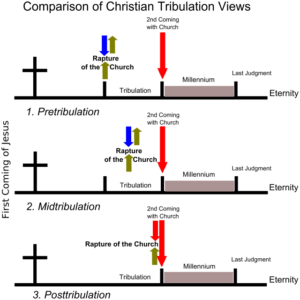 Those three views are:
Those three views are:
- The Pre-Tribulation belief which holds that the Rapture will take place before the tribulation, that the Church will be with the Lord for seven years, and will return with him when the tribulation is over.
- The Mid-Tribulation belief which holds that the Rapture will take place in the middle of the seven years of tribulation, that the Church will be with the Lord for 3 1/2 years, and will then return with him.
- The Post-Tribulation belief which is that the Rapture will take place at the end of the tribulation, that the Church will be lifted to the Lord and return with him. They believe the Rapture and the Return of the Lord are one event: that the Church will be caught up to meet the Lord as he descends from heaven. They believe there is only one coming of the Lord – at the end of the tribulation.
- The apostle Paul wrote about the Rapture in two places in scripture: 1The 4:16-17 where he described the event; and 1Cor 15:51-54 where he told us when it happens.
- In 1The, he said, (1) “the Lord himself shall descend from heaven with a shout,” (2) “with the voice of the archangel,” and (3) “with the trump of God.” Then, the Rapture of the Church will take place.
- In 1Cor, he said that “the trump of God” that accompanies the Rapture will take place at the sound of the “last trump.” He said it will be the last trumpet sound to be made. Obviously, that is at the end!
- Jesus spoke of the “end of the world” and the “signs of his coming” in Mat 24, Mar 13, and Luk 21. If you read through any one – or all – of those three chapters in the Bible, looking for the things that accompany the Rapture: a shout of the Lord, the voice of the archangel, or a trumpet sound, you won’t find anything like the Rapture until you come to the end: until immediately after the Tribulation.
- In Mat 24:29-31, Jesus said, “Immediately after the tribulation of those days… the Son of man… shall send his angels with a great sound of a trumpet… and gather together his elect.” This is the Rapture! This is the sound of the Last Trump – “immediately after the tribulation.”
- In Mar 13:24-27, the wording is slightly different, but the meaning in exactly the same. And Luke chose not to speak of the Rapture at all in his Gospel. In the Gospel of John, referring to the Rapture of the Church as “the resurrection,” or a “raising up” of his people, Jesus told us three times that it would be at the “last day.”
- He said, “This is my father’s will… that of all which he hath given me, I should lose nothing; but should raise it up again at the last day” (Joh 6:39). In the very next verse, he repears his statement that he “will raise him up at the last day” (Joh 6:40). And, as if we still didn’t get his meaning, he says it one more time: “No man can come to me except the Father… draw him; and I will raise him up at the last day” (Joh 6:44).
- One of the best evidences that the Church will be on earth through the Tribulation is that the Bible clearly states that – just as Irenaeus and Hippolytus taught – the Antichrist will persecute the Church after he comes to power. Since that’s true, it makes sense that the Church has to be on earth for him to persecute.
- In the New Testament, the word “saints” is used over fifty (50) times; and in every instance, the word refers to the Church: the followers of Jesus Christ. In the Old Testament, in his prophecy of the end times, the prophet Daniel made it clear that the Antichrist will persecute those same people: the Church on earth. Speaking symbolically of the Antichrist as a “horn:” a person of power, he said, “The same horn made war with the saints” (Dan 7:21). Later in the same chapter, he said the Antichrist “shall wear out the saints of the most High” (Dan 7:25).
- The Book of Revelation in the New Testament confirms and verifies the words of Daniel. In the chapter that describes the Antichrist and the Mark of the Beast, speaking of the Antichrist, the Revelation says, “It was given to him (the Antichrist) to make war with the saints” (Rev 13:7).
- Some preachers and Bible teachers say that the Church will not go through the Tribulation because – according to 1The 5:9 – the Church is “not appointed” to God’s wrath that will be poured out on the earth during part – or all – of the Tribulation. In that passage, Paul said, “God hath not appointed us to wrath, but to obtain salvation by our Lord Jesus Christ.
- However, the truth is that Paul is not talking about the Rapture of the Church or about the Tribulation in this passage. He is simply stating the Gospel message; that we are not subject to God’s punishment if we are saved by our Lord Jesus Christ.
- The Church will not be subject to – or appointed to – the wrath of God that will come on the earth during the Tribulation. God will protect – and provide for – his children on earth through that time just as he protected and provided for the Children of Israel as they wandered in the wilderness for 40 years.
- In the second half of Chapter 12 of the Book of Rev when the “woman” comes to represent the New Covenant faithful few, the Overcomers, the church on earth we are told twice that God will care for her and for “the remnant of her seed which keep the commandments of God, and have the testimony of Jesus Christ” (Rev 12:17). In the Revelation, we’re told that “the woman fled into the wilderness, where she hath a place prepared of God” (Rev 12:6). And, “To the woman were given two wings of an eagle, that she might fly into the wilderness, into her place” (Rev 12:14).
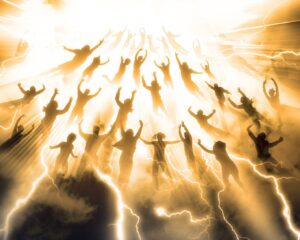 Pre- Trib Rapture is not the historic teaching of the Church. One of the more astonishing facts in the history of eschatological thought, and one that most Christians are unaware of, is that the idea of “a secret pre-tribulation, Rapture removal from the earth of the Church” is a fairly recent theory in Church history. In theological circles, it’s a “Johnny come lately.” Even the historic creeds, conspicuously, don’t mention it. In fact, it was relatively unheard of and never taught until the early 19th century, and it didn’t become widespread until the 20th century. Since then, it has spread like wildfire. But the many failed predictions of its coming have made it an embarrassment.
Pre- Trib Rapture is not the historic teaching of the Church. One of the more astonishing facts in the history of eschatological thought, and one that most Christians are unaware of, is that the idea of “a secret pre-tribulation, Rapture removal from the earth of the Church” is a fairly recent theory in Church history. In theological circles, it’s a “Johnny come lately.” Even the historic creeds, conspicuously, don’t mention it. In fact, it was relatively unheard of and never taught until the early 19th century, and it didn’t become widespread until the 20th century. Since then, it has spread like wildfire. But the many failed predictions of its coming have made it an embarrassment.
 The first known reference may have appeared in two obscure but contestable sentences from a 4th century A.D., 1500-word sermon written in Latin by someone called “Pseudo-Ephraem.” If so, this idea went essentially unknown and undeveloped for fourteen centuries. According to most researchers, the idea of a Rapture-removal from planet Earth prior to a “great tribulation” period began to surface in the late 18th and early 19th centuries. Possible but only slight and vague mentions of it may have been published in the writings of a famous Calvinist theologian Dr. John Gill (1748), an early American Baptist pastor Morgan Edwards (1788), a Jesuit priest Emmanuel Lacunza (1812), and Edward Irving, who translated Lucunza’s book (1826).
The first known reference may have appeared in two obscure but contestable sentences from a 4th century A.D., 1500-word sermon written in Latin by someone called “Pseudo-Ephraem.” If so, this idea went essentially unknown and undeveloped for fourteen centuries. According to most researchers, the idea of a Rapture-removal from planet Earth prior to a “great tribulation” period began to surface in the late 18th and early 19th centuries. Possible but only slight and vague mentions of it may have been published in the writings of a famous Calvinist theologian Dr. John Gill (1748), an early American Baptist pastor Morgan Edwards (1788), a Jesuit priest Emmanuel Lacunza (1812), and Edward Irving, who translated Lucunza’s book (1826).
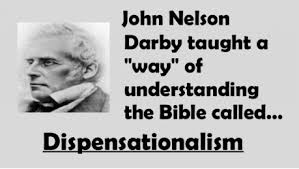 Most scholars, however, agree that the secret Rapture theory was launched into prominence around 1830 by a group of people in Scotland who had become known as the Plymouth Brethren. Under the direction of John Nelson Darby (1800-1882) and others, they began to hold Prophetic Conferences. Supposedly, during one of those conferences, or from a sick bed during those conferences, a charismatic utterance came forth as a prophetic message from the Lord through a young, fifteen-year-old Scottish girl named Margaret Macdonald. While in a trance, she received a private vision and revelation that only a select group of believers would be removed from the earth before the days of the Antichrist. But she also saw other believers enduring the tribulation¾something most rapturists nowadays do not teach.
Most scholars, however, agree that the secret Rapture theory was launched into prominence around 1830 by a group of people in Scotland who had become known as the Plymouth Brethren. Under the direction of John Nelson Darby (1800-1882) and others, they began to hold Prophetic Conferences. Supposedly, during one of those conferences, or from a sick bed during those conferences, a charismatic utterance came forth as a prophetic message from the Lord through a young, fifteen-year-old Scottish girl named Margaret Macdonald. While in a trance, she received a private vision and revelation that only a select group of believers would be removed from the earth before the days of the Antichrist. But she also saw other believers enduring the tribulation¾something most rapturists nowadays do not teach.
 Soon thereafter, Darby coupled this highly questionable vision of a secret, pre-tribulation Rapture with another idea originated by the Jesuit priest, Francisco Ribera. In 1585 A.D., Ribera was the first to introduce the idea of interrupting Daniel’s 70-week, end-time prophecy and inserting a “gap” between the 69th and 70th weeks. This was done to deflect apocalyptic heat from the Reformers who were fueling reformation fervor by claiming the Pope was the Antichrist and the Catholic Church the beast of Revelation. Ribera surmised that the first 69 weeks (483 years) concluded at the baptism of Jesus in 27 A.D., but God had extended the 70th week into the future. Therefore, the Pope and the Catholic Church could not be so accused. Darby grabbed hold of Ribera’s severance idea, connected his “Rapture” to the beginning of that final week, and changed that week from a 7-year period of covenantal confirmation to one of tribulation¾big difference! (Notably, the Bible never mentions a future 7-year period of tribulation.) He then introduced this now fully developed, pre-tribulation Rapture view (theory) in Europe and later in America. It was popularized in American by inclusion in the notes of the Scofield Reference Bible in 1917 and by elaborate End Time event charts published in Clarence Larkin’s Dispensational Truth in 1918.
Soon thereafter, Darby coupled this highly questionable vision of a secret, pre-tribulation Rapture with another idea originated by the Jesuit priest, Francisco Ribera. In 1585 A.D., Ribera was the first to introduce the idea of interrupting Daniel’s 70-week, end-time prophecy and inserting a “gap” between the 69th and 70th weeks. This was done to deflect apocalyptic heat from the Reformers who were fueling reformation fervor by claiming the Pope was the Antichrist and the Catholic Church the beast of Revelation. Ribera surmised that the first 69 weeks (483 years) concluded at the baptism of Jesus in 27 A.D., but God had extended the 70th week into the future. Therefore, the Pope and the Catholic Church could not be so accused. Darby grabbed hold of Ribera’s severance idea, connected his “Rapture” to the beginning of that final week, and changed that week from a 7-year period of covenantal confirmation to one of tribulation¾big difference! (Notably, the Bible never mentions a future 7-year period of tribulation.) He then introduced this now fully developed, pre-tribulation Rapture view (theory) in Europe and later in America. It was popularized in American by inclusion in the notes of the Scofield Reference Bible in 1917 and by elaborate End Time event charts published in Clarence Larkin’s Dispensational Truth in 1918.
 Of course, the relative newness of the “Rapture” theory in Church history (180 some years ago) neither proves nor disproves its biblical correctness. But it certainly shouldn’t be blindly accepted nor excluded from being questioned and tested (1 Thess. 5:21). Ultimately, the truth can only be found in the Scriptures. But what began as a result of one woman’s private vision and charismatic utterance became widely taught, accepted as the truth, and popularized in the thinking of millions. It has become so deeply entrenched that many pastors and Christian leaders assume it is an essential teaching of Church history extending back to apostolic times. It is not. What’s more, it is not believed by the majority in the Church today, and with good reasons.
Of course, the relative newness of the “Rapture” theory in Church history (180 some years ago) neither proves nor disproves its biblical correctness. But it certainly shouldn’t be blindly accepted nor excluded from being questioned and tested (1 Thess. 5:21). Ultimately, the truth can only be found in the Scriptures. But what began as a result of one woman’s private vision and charismatic utterance became widely taught, accepted as the truth, and popularized in the thinking of millions. It has become so deeply entrenched that many pastors and Christian leaders assume it is an essential teaching of Church history extending back to apostolic times. It is not. What’s more, it is not believed by the majority in the Church today, and with good reasons.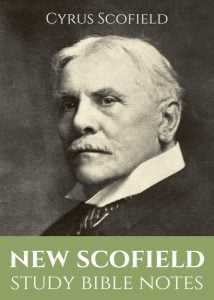
This view was very controversial within their fellowship of churches, causing some division between those who accepted the new understanding and those who did not. Later Darby traveled widely in Ireland, England and the United States, teaching both the premil and the pretrib views. Both views were unfamiliar to most Americans, and many assumed that the premil and the pretrib views were necessarily interwoven. Through Darby’s teachings, and later the Scofield Reference Bible, this view became widespread in the US.
By the early 20th century, many of the established religious colleges and seminaries had slipped into liberal theology. In response to this, conservative Bible schools and institutes were started. Such well-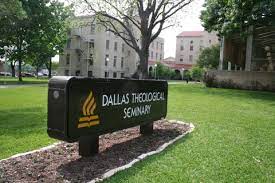 known schools as Dallas Theological Seminary originated this way. Because most of these Bible institutes were established by pretrib teachers, this view became the de facto belief of many churches and denominations for most of the 20th century. Until the past few decades, practically all Baptist, Pentecostal, independent Bible churches and Free churches were pretrib.
known schools as Dallas Theological Seminary originated this way. Because most of these Bible institutes were established by pretrib teachers, this view became the de facto belief of many churches and denominations for most of the 20th century. Until the past few decades, practically all Baptist, Pentecostal, independent Bible churches and Free churches were pretrib.
Sources:
- Shattering the ‘Left Behind’ Delusion by John Noe (out-of-print)
- Unraveling the End by John Noe
- End Times Fiction by Gary DeMar
- Last Days Madness by Gary DeMar
- The Rapture Plot by Dave MacPherson
- Rapture Fever by Gary North
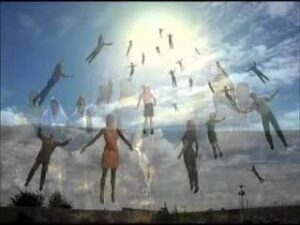 Historical Evidence of a Post-Tribulation Rapture
Historical Evidence of a Post-Tribulation Rapture
The early church believed in a Post-tribulation Rapture – and held that belief for a little over 1800 years.
For example, early church teachers by the names of Ireneaus (130-202AD) and Hippolytus (birthdate unknown-235AD), second and third generation disciples of John the Revelator, wrote of the rise of the Antichrist and of the coming of the Lord from a Post-tribulation point-of-view.
They both taught that the Antichrist will reign on earth and persecute the Church right up to the return of the Lord in all his power and glory.
In his book, “Against Heresies,” Irenaeus, writing about the Antichrist, said, “His tyranny shall last three years and six months, during which the saints shall be put to flight” (Ch. xxv.4). Later, in the same book, he said, “The resurrection of the just takes place after the coming of Antichrist” (Ch. xxxv.1).
Hippolytus wrote a number of books; and in one called a “Commentary on the Book of Daniel,” speaking of the Antichrist, he said, “When he has conquered all, he will prove himself a terrible and savage tyrant; and will cause tribulation and persecution to the saints, exalting himself against them” (Ch. 7). In the same book, referring to the Two Witnesses of Revelation 11, he said, “The two witnesses, then, shall preach three years and a half; and Antichrist shall make war upon the saints during (that time) and desolate the world” (Ch. 11).
Post-Tribulation Believers from History
- Barnabas (40-100)
- Clement of Rome (40-100)
- Hermas (40-140)
- Polycarp (70-167)
- Justin Martyr (100-168)
- Melito (100-170) Irenaeus (140-202)
- Tertullian (160-220)
- Hippolytus (160-240)
- Cyprian (200-258)
- Victorinus of Poetovia (240-303)
- Lactantius (240-330)
- Athanasius (293-373)
- Ephraim the Syrian (306-373)
- Pseudo-Ephraem (4th Century?)
- Cyril of Jerusalem (315-386)
- Jerome 340-420)
- Chrysostom (345-407)
- Augustine (354-430)
- Venerable Bede (673-735)
- Bernard of Clairvaux (1090-1153)
- Roger Bacon (1214-1274)
- John Wycliffe (1320-1384)
- Martin Luther (1483-1546)
- William Tyndale (1492-1536)
- Menno Simons (1496-1561) J
- ohn Calvin (1509-1564)
- John Knox (1515-1572)
- John Fox (1516-1587)
- Roger Williams (1603-1683)
- John Bunyan (1628-1688)
- Daniel Whitby (1638-1726)
- Increase Mather (1639-1723)
- Matthew Henry (1662-1714)
- Cotton Mather (1663-1728)
- Jonathan Edwards (1703-1758)
- John Wesley (1703-1791)
- George Whitefield (1714-1770)
- David Brainerd (1718-1747)
- Morgan Edwards (1722-1795)
- John Newton (1725-1807)
- Adam Clarke (1762-1832)
- Charles G. Finney (1792-1875)
- Charles Hodge (1797-1878)
- Albert Barnes (1798-1870)
- George Mueller (1805-1898)
- Benjamin W. Newton (1805-1898)
- R.C. Trench (1807-1886)
- Carl F. Keil (1807-1888)
- Henry Alford (1810-1871)
- John Lillie (1812-1867)
- F.L. Godet (1812-1900)
- Robert Murray McCheyne (1813-1842)
- S.P. Tregelles (1813-1875)
- Franz Delitzsch (1813-1890)
- C.J. Ellicott (1819-1905)
- Nathaniel West (1826-1906)
- Alexander MacLaren (1826-1910)
- J.H. Thayer (1828-1901)
- Adolph Saphir (1831-1891)
- M.R. Vincent (1834-1922)
- William J. Erdman (1834-1923)
- H. Grattan Guinness (1835-1910)
- H.B. Swete (1835-1917)
- William G. Moorehead (1836-1914)
- A.H. Strong (1836-1921)
- Theodor Zahn (1838-1936)
- I.T. Beckwith (1843-1936)
- Robert Cameron (1845-1922)
- B.B. Warfield (1851-1921)
- David Baron (1855-1926)
- Philip Mauro (1859-1952)
- A.T. Robertson (1863-1934)
- R.C.H. Lenski (1864-1936)
- William E. Biederwolf (1867-1939)
- Alexander Reese (1881-1969)
- Norman S. MacPherson (1899-1980)
Other Post-Trib Believers
- Jay Adams Randy
- Alcorn Richard Ames
- Roy W. Anderberg
- Matthew Arnold
- J. Sidlow Baxter
- Allistair Begg
- Corrie ten Boom
- F.F. Bruce
- B.H. Carroll
- Jonas Clark
- William Cowper
- John Gill
- Robert Gundry
- Hank Hanegraaf
- William Hendriksen
- Carl F.H.
- Henry Matthew
- Henry Herschell
- Hobbs Adoniram
- Judson Arthur
- J. Katterjohn
- D. James Kennedy
- George Eldon Ladd
- Hugh Latimer
- C.S. Lewis
- J.B. Lightfoot
- Harold Lindsell
- C.S. Lovett
- Walter Martin
- Jack McAlister
- James (Jim) McKeever
- Albert Mohler
- John Warwick Montgomery
- Doug Moo
- Dale Moody
- Russell Moore
- G. Campbell Morgan
- H.C.G. Moule
- Andrew Murray
- Watchman Nee
- Sir Isaac Newton
- Harold J. Ockenga
- J. Edwin Orr
- Ian Paisley
- Wilfred Pink
- John Piper
- Bernard Ramm
- Paul Rees
- Marv Rosenthal
- Oswald J. Smith
- R.C. Sproul
- Charles Spurgeon
- John R.W. Stott
- Merrell Tenny
- B.B. Warfield
- Isaac Watts C
- harles Wesley
- William Wilberforce
- Andrew Wommack
- Ulrich Zwingli
Reference:
- Eljasib
- www.posttribpeople.com
- www.prophecyrefi.org




